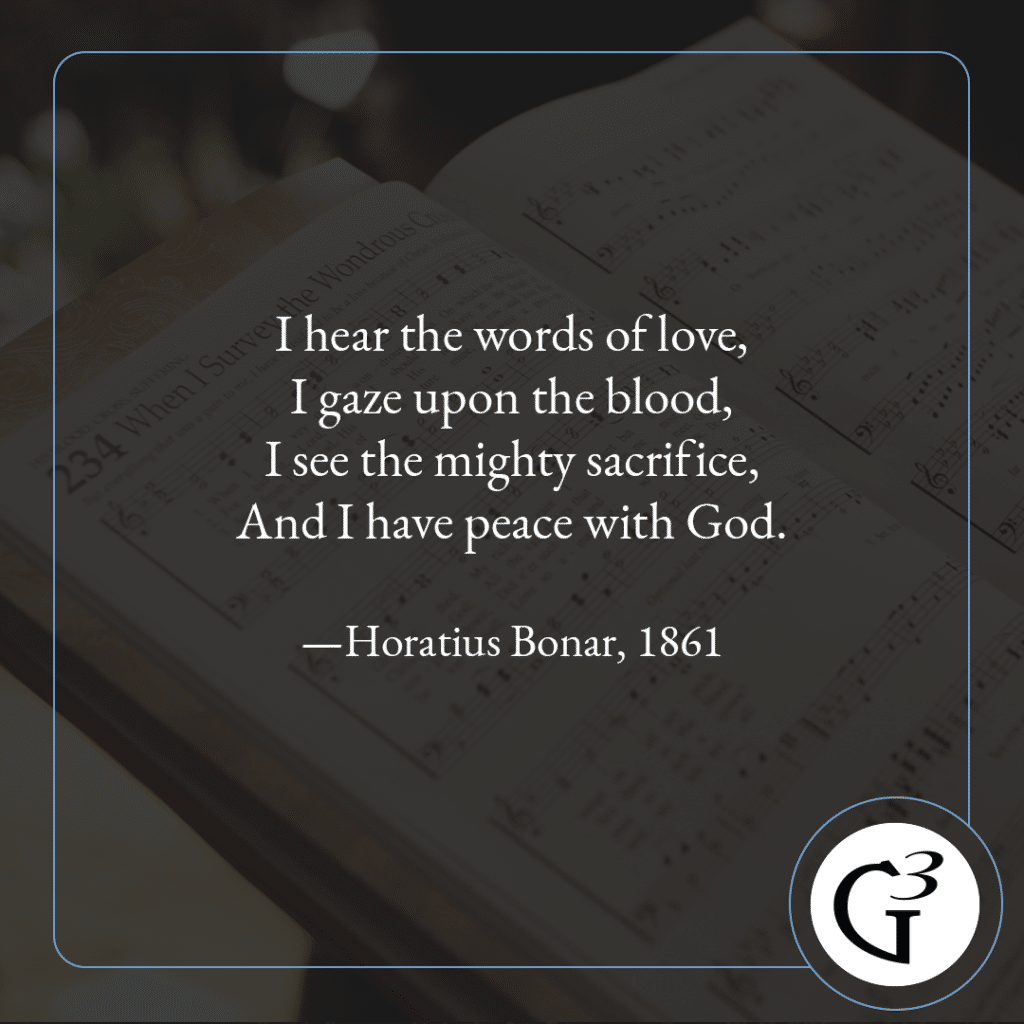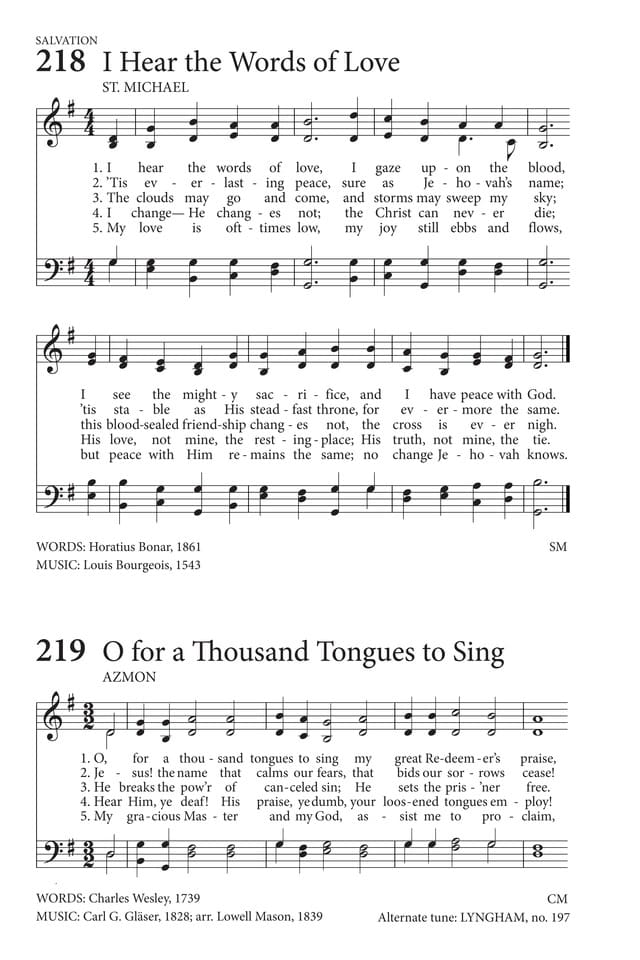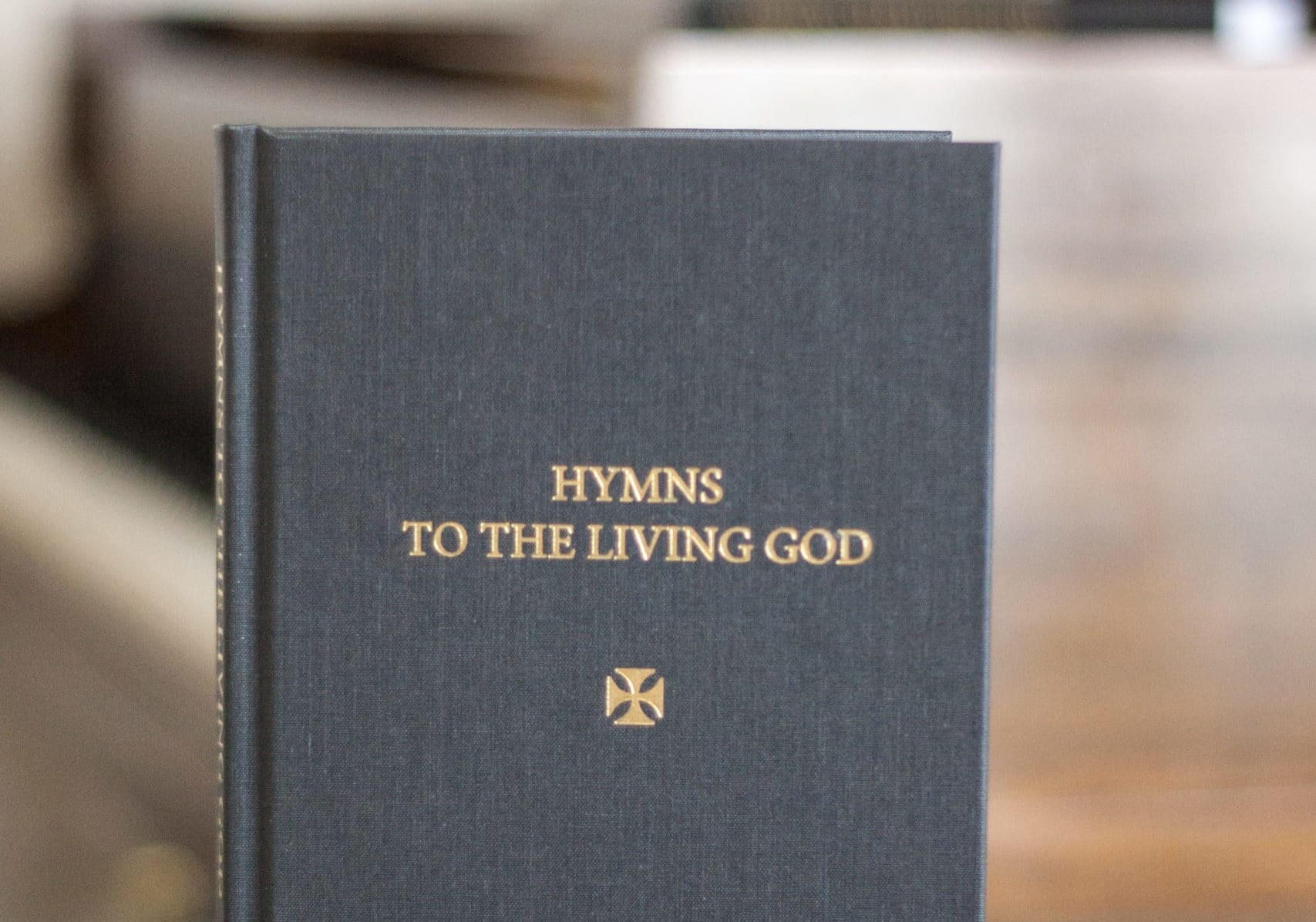
What if God could change? Wayne Grudem contemplates the ramifications of such a possibility—it would mean that God could either become more good or more evil. If He could become better, then He was not perfectly good in the past. If He could become worse, then what would stop Him from becoming entirely evil? Who could trust or worship a God like that? Or if His purposes could change, how could anyone trust the promises He has made in the Bible? Grudem concludes, “If God is not unchanging, then the whole basis of our faith begins to fall apart, and our understanding of the universe begins to unravel. This is because our faith and hope and knowledge all ultimately depend on a person who is infinitely worthy of trust—because he is absolutely and eternally unchanging in his being, perfections, purposes, and promises” (Systematic Theology, 168, italics original).
How could one distill this somewhat abstract theology into a hymn? Scottish pastor and poet Horatius Bonar (1808–1889) did just that in his hymn “I Hear the Words of Love,” a text that richly deserves to be more widely known. Here Bonar explains that God’s immutability (the fact that He does not change) guarantees our eternal salvation, no matter how we feel. The cross of Christ and His empty tomb prove God’s unchanging love and His eternal victory over death and sin.
Because of a long-standing insistence on using only metrical psalms in worship, the Presbyterian Church in Scotland did not develop its own hymnody until relatively late (its first denominational hymnal did not appear until 1898). But when newly written hymns became more accepted, Horatius Bonar was at the front lines. Born in Edinburgh, Horatius was one of a long line of preachers in his family, a line that stretched 364 years in the Church of Scotland. After graduating from the University of Edinburgh, he began pastoral ministry in Kelso, some 45 miles southeast of his hometown. Horatius was involved in ministry to children from the beginning, and began writing hymns for them. His best-known text, the powerful “I Heard the Voice of Jesus Say,” was originally written for the children he served. Gradually, adults discovered his hymns as well, and Horatius also published a number of his nearly 600 hymns in a prophecy journal that he edited. In 1866 he returned to Edinburgh, and pastored there for the rest of his life. God used Horatius’s preaching and writing, along with the preaching of his two brothers and their friend Robert Murray M’Cheyne, to spearhead an evangelical revival in Scotland. Horatius was also acquainted with American evangelist D. L. Moody, and wrote some hymns for Moody’s British campaigns.
Bonar’s impact lasted well beyond his lifetime. Shortly before his death, he requested that no biography be written of him, so that all the glory for his life would go to Christ. Yet his hymns have continued to teach and challenge believers around the world. Millar Patrick, himself a Scottish Presbyterian, wrote that Bonar’s work “nobly redeems the Presbyterian name from the reproach of lyrical barrenness” (The Story of the Church’s Song, 160). Perhaps more positively, Bonar is known as the “Prince of Scottish Hymn Writers.”
“I Hear the Words of Love” has never been a familiar hymn,1According to hymnary.org, the hymn appears in 71 hymnals, but only 3 of them were published after 1979. One of these is Hymns to the Living God, #218, or online here. but the reassurance and hope it provides speaks deeply to the soul of the suffering Christian. “I see the mighty sacrifice,/And I have peace with God,” says the first stanza, echoing Romans 5:1. What kind of peace? One that is just as eternal as God’s throne (stanza 2).
The third and fourth stanzas contrast our fickle feelings with God’s unchanging promises. Even though “storms may sweep my sky,” Christ’s death stands as an everlasting sign of God’s love. Our love and joy waver; our state of peace with God cannot change. The fifth stanza states that if anything could shake the cross, or disrupt these promises, then it would mean that Jesus had not risen from the dead. “But now Christ has been raised from the dead!” Paul exclaims in 1 Corinthians 15:20. Jesus’ death and resurrection form the unchanging basis of our hope, states the sixth stanza.
The seventh stanza speaks truth into a world of relativism that Bonar could hardly have imagined. Could the poet have known that one day a person could claim “my truth” to be absolute for him or her? Yet, as this stanza indicates, God’s truth is the only unchangeable truth—and therefore the only one worth building on. Christ is no longer in the tomb, the hymn goes on to say, yet buried in it now are our woes. Our hope rests on a risen Savior, ascended to heaven, where He sits at the right hand of God, on an eternally unchangeable throne.
Composer Josh Sparkman has done a valuable service for the church in his choral setting of this text, to the beautiful yet simple tune ST. MICHAEL. The music is by Louis Bourgeois, best known for his tune OLD HUNDREDTH (the “Doxology”) and his work on the Genevan Psalter as used by John Calvin. Text and tune fit remarkably well together, providing the Church with a memorable way to rejoice in the immutability of God.
I hear the words of love,
I gaze upon the blood,
I see the mighty sacrifice,
And I have peace with God.
’Tis everlasting peace!
Sure as Jehovah’s name,
’Tis stable as His steadfast throne,
For evermore the same.
The clouds may go and come,
And storms may sweep my sky;
This blood-sealed friendship changes not,
The cross is ever nigh.
My love is ofttimes low,
My joy still ebbs and flows;
But peace with Him remains the same,
No change Jehovah knows.
That which can shake the cross
May shake the peace it gave,
Which tells me Christ has never died,
Or never left the grave!
Till then my peace is sure,
It will not, cannot yield,
Jesus, I know, has died and lives—
On this firm rock I build.
I change, He changes not,
The Christ can never die;
His love, not mine, the resting place,
His truth, not mine, the tie.
The cross still stands unchanged,
Though Heav’n is now His home,
The mighty stone is rolled away,
But yonder is His tomb!
And yonder is my peace,
The grave of all my woes!
I know the Son of God has come,
I know He died and rose.
I know He liveth now,
At God’s right hand above,
I know the throne on which He sits,
I know His truth and love.
—Horatius Bonar, 1861

References



